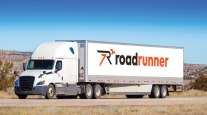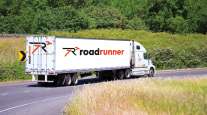Roadrunner Reduces Delivery Times

Facing declining revenue and operating profits, the less-than-truckload wing of Cudahy, Wisconsin-based Roadrunner Transportation Systems Inc. has cut transit time for about a fifth of its freight by an average of 20%, an executive said Jan. 26.
Roadrunner has speeded up deliveries, thanks largely to increased business between certain cities and to a new willingness to dispatch trucks even if the trailer isn’t full, said Grant Crawford, president of the less-than-truckload unit.
Runs from, say, the San Francisco Bay area to Chicago now take four days rather than five. Runs from Atlanta to Milwaukee now take three days rather than four.
The average transit time across 155 city-to-city routes affected by the changes has been reduced to about four days from a little more than five days, Crawford said.
“Five to four is a pretty significant change for us,” he said, adding that the changes affect 20% of the volume for Roadrunner’s less-than-truckload business.
That business overall, however, has seen revenue and income drop, and the changes appear to be a response to the downward trend.
Revenue for Roadrunner's less-than-truckload segment fell about 10% from 2014 to 2015 and 11% in the first three quarters of 2016, the company’s financial statements show.
Operating income — 6.6% in 2013 — dropped to 3.9% in 2015. For the first three quarters of 2016, it was just 1%.
“Our results over the last couple of years have made it clear to us that we needed to listen to our customers," Crawford said, "and the changes that we’ve made with our product, with our increased commitment to reliability, service consistency and quality, have been with our ear close to what the market and our customers are asking us to do.”
In the less-than-truckload segment of trucking, freight from many shippers is consolidated in a single trailer for delivery to several destinations in the same general area.
Roadrunner ranks No. 16 on the Transport Topics Top 100 list of the largest U.S. and Canadian for-hire carriers. Its less-than-truckload business, Roadrunner Freight, accounts for about a fourth of total company revenue. The firm’s truckload unit is more than twice as large. Roadrunner also operates a logistics business.




